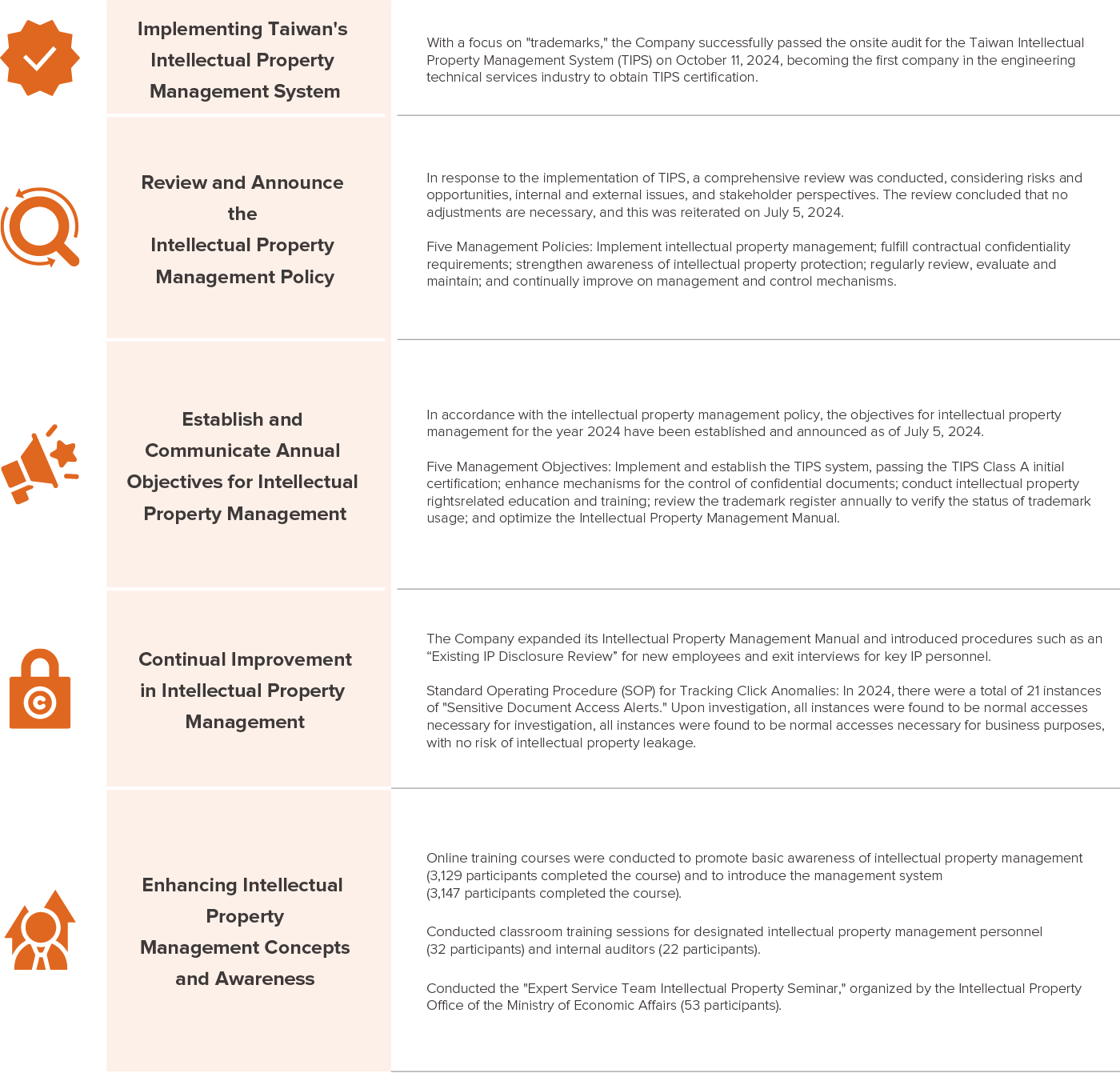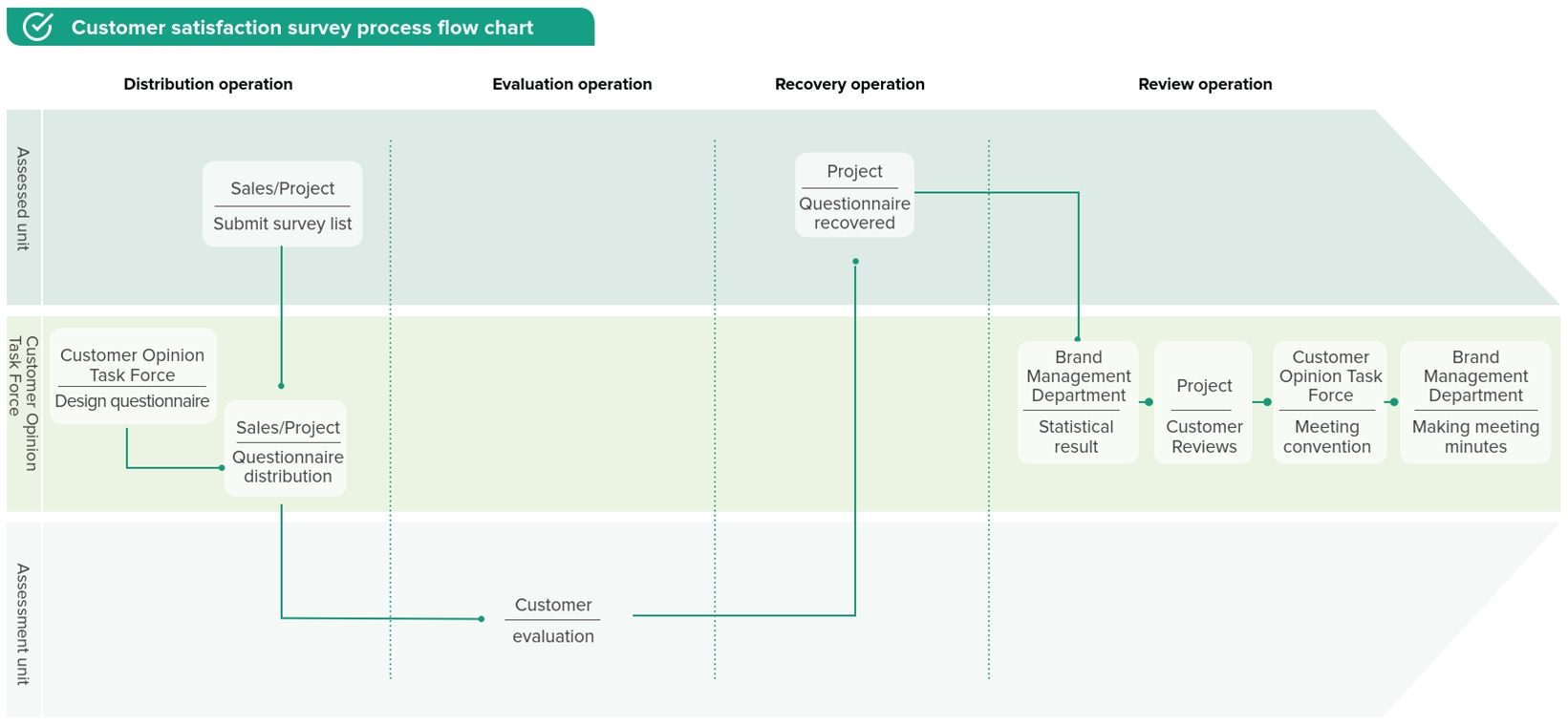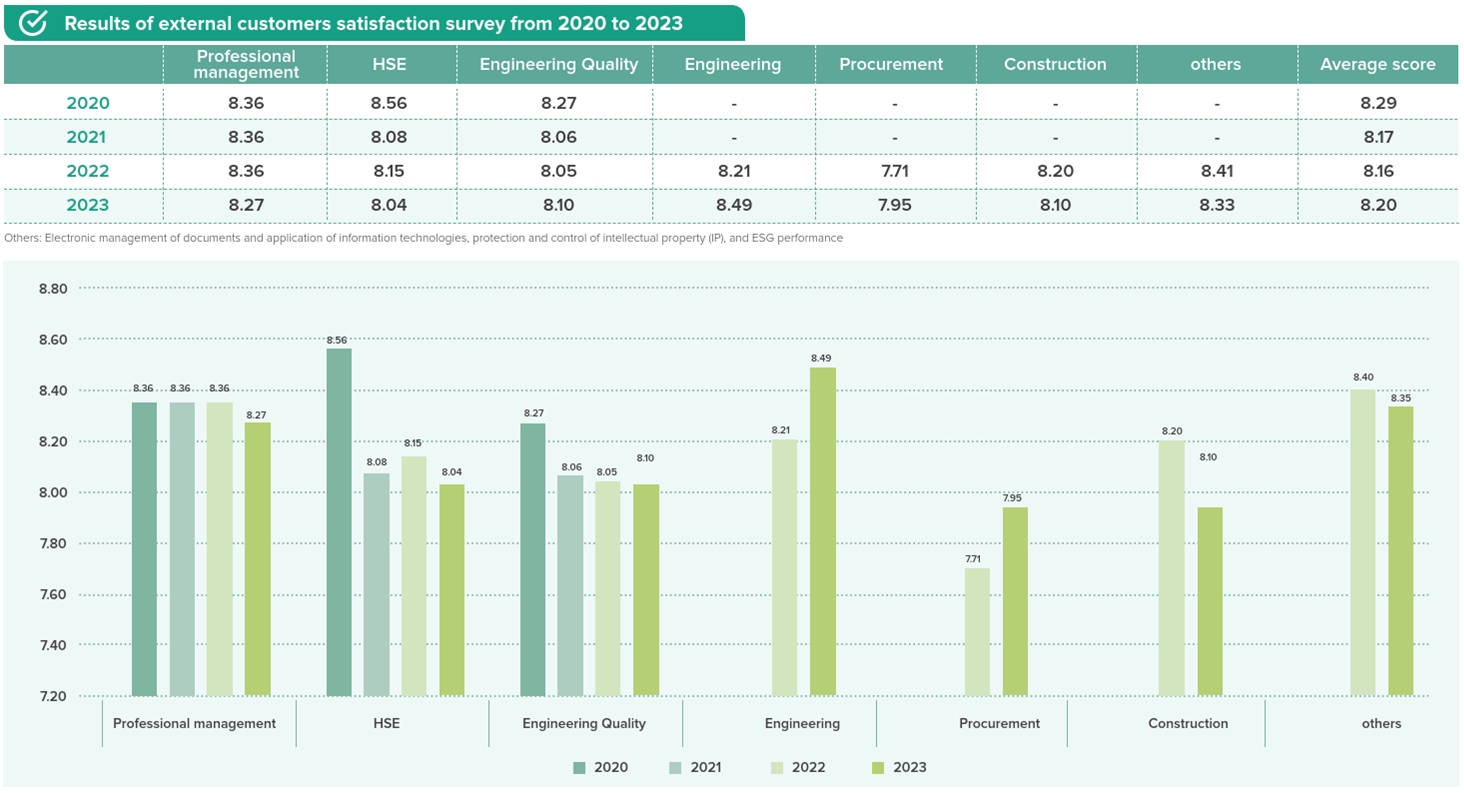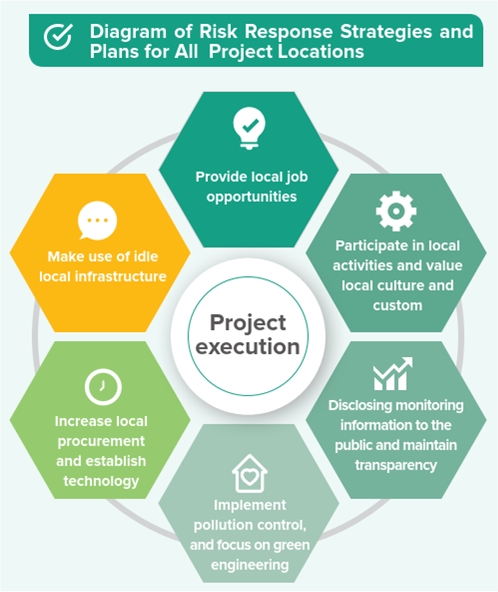Customer Service

Customer Service
Service Quality
Quality is the foundation of trust. CTCI aims for quality by striving to "do the right thing and do it right the first time." Based on ISO 9001 Quality Management System requirements, CTCI has developed a comprehensive quality management system, while continuing to cultivate internationalized professional quality management talents and develop information-based quality management tools. This is to prevent and address quality issues, create environmentally-friendly green engineering projects with high quality, and continuously research and improve the mechanism of quality management.
Strengthen Employees' Awareness and Compliance with Regulations/Procedures
CTCI holds an annual Regulations/Procedures Update Briefing, typically led by the President, to reinforce employees’ understanding of the latest internal regulations and procedures. The briefing invites relevant department heads and project-level managers and is delivered through a combination of classroom and online training, assessments, and feedback mechanisms to ensure thorough comprehension. In 2024, a total of 396 employees completed the training, amounting to 1,188 training hours, with a 100% completion rate. Furthermore, to ensure that project execution and control requirements are effectively communicated across all functions, materials from the briefing - including agendas, training slides, and course videos - are distributed to departments such as engineering, procurement, construction, and marking & sales. These materials are used for e-learning training, with required courses assigned based on job roles. In 2024, 1,811 employees completed the e-learning modules, totaling 1,037.5 training hours, again achieving a 100% completion rate. To further maximize training effectiveness, all materials and videos are uploaded to the CTCI University learning platform and are announced via rotating banners on the Company’s EIP homepage, encouraging employees to review the content voluntarily.
Strengthen Intellectual Property Protection to Develop the Correct Awareness
As the global market becomes increasingly competitive, well-known international enterprises are putting more emphasis on the management of intellectual property (IP). IP protection and management has become the key to enterprises' core competitiveness. CTCI continues to advance its IP management practices. In 2024, key initiatives included: becoming the first engineering services company to adopt the Taiwan Intellectual Property Management System (TIPS); reviewing and reissuing its Intellectual Property Management Policy; establishing and publicly announcing annual IP management objectives; continuously improving its internal IP management processes; and enhancing employee awareness and understanding of IP concepts. These efforts ensure robust oversight and control across both daily operations and project sites, reinforcing correct practices among employees and delivering the most reliable services to clients.


Customer Satisfaction
To better understand customer needs, CTCI gathers feedback through a variety of channels. Staff at business units would regularly pay visit to clients for whom CTCI is carrying out projects, as a way to strengthen communication and promptly address and resolve issues. Once a project enters the warranty phase, any service requests or suggestions from clients are addressed as swiftly as possible by the responsible department, with continuous follow-up and management to ensure that all warranty-related tasks are completed as required. CTCI conducts an annual customer satisfaction survey to assess performance across multiple satisfaction indicators. The results serve as a key reference for improving service quality. A cross-functional Customer Feedback Task Force, chaired by the President, reviews the survey findings and proposes improvement actions, which are then assigned to relevant departments for implementation to ensure that the service quality meets customer expectations and trust. CTCI also conducts an internal satisfaction survey in which project managers evaluate the performance of engineering and technical departments. The results are cross-analyzed with external customer satisfaction data to provide a comprehensive, inside-out view of project needs and further enhance service quality. In 2024, CTCI conducted a customer satisfaction survey for 28 projects, achieving a response rate of 100%. The average satisfaction score was 8.75 out of 10, surpassing the annual target of 8. Among these, projects classified as green engineering achieved an even higher satisfaction score of 8.98. In terms of sustainability performance (ESG), clients rated CTCI at 8.8, indicating that ESG practices are of high importance to clients and that CTCI's efforts in this area are well recognized. All customer feedback and ratings for the year were thoroughly reviewed, and improvement measures were formulated accordingly.

In addition to the aforementioned survey scores, CTCI conducted a further analysis indicating that the 28 projects surveyed in 2024 accounted for 66.19% of total revenue. Projects with a satisfaction score of 7.5 or higher totaled 25, representing 89% of the total number of surveyed projects. Both figures demonstrate improvement compared to the previous year. To further enhance the representativeness of the survey results (including metrics such as the "Revenue Coverage Rate of Surveyed Projects" shown in the table below), CTCI continues to improve service quality, strengthen communication and interaction with clients, and deepen mutual trust. These efforts aim to increase overall customer satisfaction and lay the foundation for long-term, stable partnerships.

Project Evaluation & Community Outreach
The company's project team evaluates project risks in accordance with the company's project risk management procedures. With a scope covering the early bidding phase to the later price review phase, the evaluation is conducted through various processes and aspects to ensure project feasibility. In terms of planning and strategies in response to locale-specific risks pertaining to each project, CTCI has been proactively communicating and interacting with the public on relevant mitigation measures for potential impacts. In this way, CTCI can ease their doubts, build a close relationship with the local community, and continue to engage in community discussions and impact evaluations. For example, if nearby residents and stakeholder groups raise complaint on the execution of the project, they can immediately contact the site manager, full-time construction personnel, or HSE management personnel by referring to the publicly-available contact information on the construction bulletin board. The responsible personnel would respond to those complaints in a timely manner or work with other departments to address their concerns in an effectively way. As the strategy diagram here shows, during project execution, it is important to coordinate with public meetings, prioritize the local ecological environment, respect the cultural and religious customs of different regions, and address potential impact through appropriate communication with professional, innovative technical capabilities and integrity. Relevant environmental monitoring should also be conducted and information utilized to offer the public understanding and supervision. Additionally, job opportunities should be provided, local procurement increased, and local resources utilized to avoid potential risks, promote harmonious coexistence, and ensure mutual benefit between the project team and the local community.
